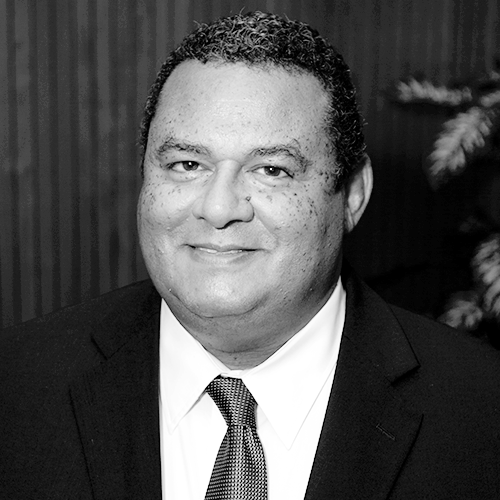A critical belief that has stayed with Shellie Clausen-Kerstetter throughout her career—from her early law firm days to her sixteen years at Houston-based Layne Christensen Company—is that a legal team is a service department.
“Service translates into accessibility,” she says. “Answer your phone, respond to e-mails as promptly as possible, and give practical and helpful advice in plain English. Simple as that.
“Every day, people in operations have a choice as to whether they’ll call a lawyer or sign the agreement as-is,” Clausen-Kerstetter adds. “Nine times out of ten it’ll be fine, but then there’s the time someone makes a claim, and you have horrible terms. So you need to make sure legal is valued.”
It’s an approach that has helped Layne through a journey that started in the water-drilling business and experienced stunning growth and diversification—only to be quelled by the economic meltdown of 2008. Layne was led by two different chief executive officers in the years that followed, and now it has returned to its water and drilling roots.
Clausen-Kerstetter’s legal team has handled work that has, at times, been varied and unexpected. They fielded calls from CNN and a Hollywood agent when Layne was involved in the dramatic rescue of thirty-three Chilean miners in 2010, and they dealt with the consequences of self-reporting violations to the US Foreign Corrupt Practices Act (FCPA).
“It’s been a long, long road,” Clausen-Kerstetter says of that last process, but her words also describe the full circle she’s witnessed in her years at Layne.
“Every day, people in operations have a choice as to whether they’ll call a lawyer or sign the agreement as-is.”
When she started at the company in 2000, her focus was on securities, and Layne, which had specialized mostly in water wells for over a century, was only a few years past its acquisition of mineral-exploration company Christensen Boyles Corporation. The company’s stock was approximately $5 per share at that time, but as the minerals market began to climb and Clausen-Kerstetter’s role became more generalist, the shares more than quintupled in value.
With plenty of capital on hand, then-Chief Executive Officer Andrew Schmitt shifted Layne to the coal bed methane gas industry, turning it into a water, mineral, and energy company by 2003.
Only two years later, Clausen-Kerstetter found herself involved with the largest acquisition in company history as Layne merged with Reynolds. “It was a privately owned family business with a focus on constructing wastewater treatment plants,” she says. “So it fit into the water cycle. We drilled the water, and then we had a group that treated the water before people used it, and then again in the after-use market, we treated the wastewater, as well.”
In late 2008, by way of more acquisitions and continued market growth, Layne’s stock climbed as high as $58 per share, “the very top of the cycle,” Clausen-Kerstetter recalls.
Then came the economy’s free fall, and stock prices plunged. Recovery for Layne was slow and measured, as it was for others in the industry. But it was not long after economic recovery began that the company—particularly its legal department—faced a different kind of challenge. In 2010, the company learned that several of Layne’s African businesses had engaged in questionable business transactions that had implications under the FCPA.
Spotlight: The Chilean Miner Incident
In 2010, the company helped rescue thirty-three men trapped in a collapsed Chilean copper and gold mine. The miners were trapped 2,300 feet underground for sixty-nine days before they were brought to safety. Layne worked with Latin American affiliate Geotec to rescue the men.
“We learned that some of our African business units paid government officials for simply getting equipment across borders or through customs more quickly than normal,” Clausen-Kerstetter explains. “In some third-world countries, such payments may be expected by some government officials in order to expedite the movement of equipment along and through borders, but these payments were problematic under the FCPA.
“Our business units may have thought they were doing the company a favor,” she says of Layne’s African operations. “Since such payments are customary in some countries, it’s hard to make them understand the seriousness of it all—that they absolutely cannot do that.”
Layne opted to self-report to the US Department of Justice, something few companies had done at the time. The subsequent investigation and implementation of a compliance program—a process that is still ongoing—could be nerve-wracking at times. “It was steadily working with the government, checking in, saying ‘this is what we’ve done so far,’ and them saying ‘that looks good; keep going.’ We provided complete cooperation,” Clausen-Kerstetter says.
But the benefits of doing so—a declination of prosecution by the Department of Justice and no devastating fines—were irrefutable. The lack of fines became especially crucial as the investigation progressed—natural gas prices were dropping, and the coal bed methane industry was no longer earning its keep.
A new CEO was on board by 2011; within a year, Layne sold the energy division. Unfortunately, subsequent decisions made on behalf of that CEO failed to help, and he was replaced by 2015.
Current CEO Michael J. Caliel has outlined a strategy to focus on Layne’s strengths, and efforts are underway to realign the company business units.
And Clausen-Kerstetter, after seeing Layne in so many different incarnations, couldn’t be more pleased. “I think this past year was definitely a stabilization period,” she says. “We had to clean up our balance sheet and get our liquidity stabilized. But now, we’ve gotten all of those things done. It’s time to implement his strategy.”


